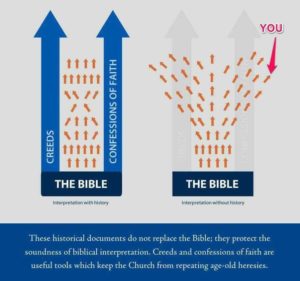 Article by R. C. Sproul: What Is the Will of God for My Life?
Article by R. C. Sproul: What Is the Will of God for My Life?
This excerpt is taken from the book “Everyone’s a Theologian”.
What does the Bible say about God’s leading? It says that if we acknowledge God in all our ways, He will direct our paths (Prov. 3:5–6). We are encouraged by Scripture to learn the will of God for our lives, and we do so by focusing our attention not on the decretive will of God but on the preceptive will of God. If you want to know God’s will for your life, the Bible tells you: “This is the will of God, your sanctification” (1 Thess. 4:3). So when people wonder whether to take a job in Cleveland or in San Francisco, or whether to marry Jane or Martha, they should study closely the preceptive will of God. They should study the law of God to learn the principles by which they are to live their lives from day to day.
The psalmist writes, “Blessed is the man who walks not in the counsel of the wicked, nor stands in the way of sinners, nor sits in the seat of scoffers; but his delight is in the law of the Lord, and on his law he meditates day and night” (Ps. 1:1–2). The godly man’s delight is in the preceptive will of God, and one so focused will be like “a tree planted by streams of water that yields its fruit in its season” (v. 3). The ungodly, however, are not like that but “are like chaff that the wind drives away” (v. 4).
If you want to know which job to take, you have to master the principles. As you do, you will discover that it is God’s will that you make a sober analysis of your gifts and talents. Then you are to consider whether a particular job is in keeping with your gifts; if it is not, you should not accept it. In that case, the will of God is that you look for a different job. The will of God is also that you match your vocation—your calling—with a job opportunity, and that requires a lot more work than using a Ouija board. It means applying the law of God to all the various things in life.
When it comes to deciding whom to marry, you look at everything Scripture says with respect to God’s blessing on marriage. Having done that, you might discover that there are several prospects who meet the biblical requirements. So which one do you marry? The answer to that is easy: whichever one you want to marry. As long as the one you choose falls within the parameters of the preceptive will of God, you have complete liberty to act according to whatever pleases you, and you do not need to lose any sleep wondering whether you are outside the hidden or decretive will of God. First, you cannot be outside the decretive will of God. Second, the only way you are going to know the hidden will of God for you today is to wait until tomorrow, and tomorrow will make it clear to you because you can look back on the past and know that whatever happened in the past is the outworking of the hidden will of God. In other words, we only know God’s hidden will after the fact. We usually want to know the will of God in terms of the future, whereas the emphasis in Scripture is on the will of God for us in the present, and that has to do with His commands.
“The secret things” belong to God, not to us. “The secret things” are not our business because they are not our property; they are His. However, God has taken some of the secret plans of His mind and removed the secrecy, and such things do belong to us. He has taken the veil away. This is what we call revelation. A revelation is a disclosure of that which once was hidden.
The knowledge that is ours through revelation properly belongs to God, but God has given it to us. That is what Moses was saying in Deuteronomy 29:29. The secret things belong to God, but that which He has revealed belongs to us, and not only to us but to our children. God has been pleased to reveal certain things to us, and we have the unspeakable blessing of sharing those things with our children and others. The priority of passing that knowledge on to our children is one of the main emphases in Deuteronomy. God’s revealed will is given in and through His preceptive will, and this revelation is given that we might be obedient.
As I said earlier, many people ask me how they can know the will of God for their lives, but rarely does anyone ask me how he can know the law of God. People do not ask because they know how to understand the law of God—they find it in the Bible. They can study the law of God in order to know it. The more difficult question is how we can do the law of God. Some are concerned about that, but not too many. Most people who inquire about the will of God are seeking knowledge of the future, which is closed. If you want to know the will of God in terms of what God authorizes, what God is pleased with, and what God will bless you for, again, the answer is found in His preceptive will, the law, which is clear.





